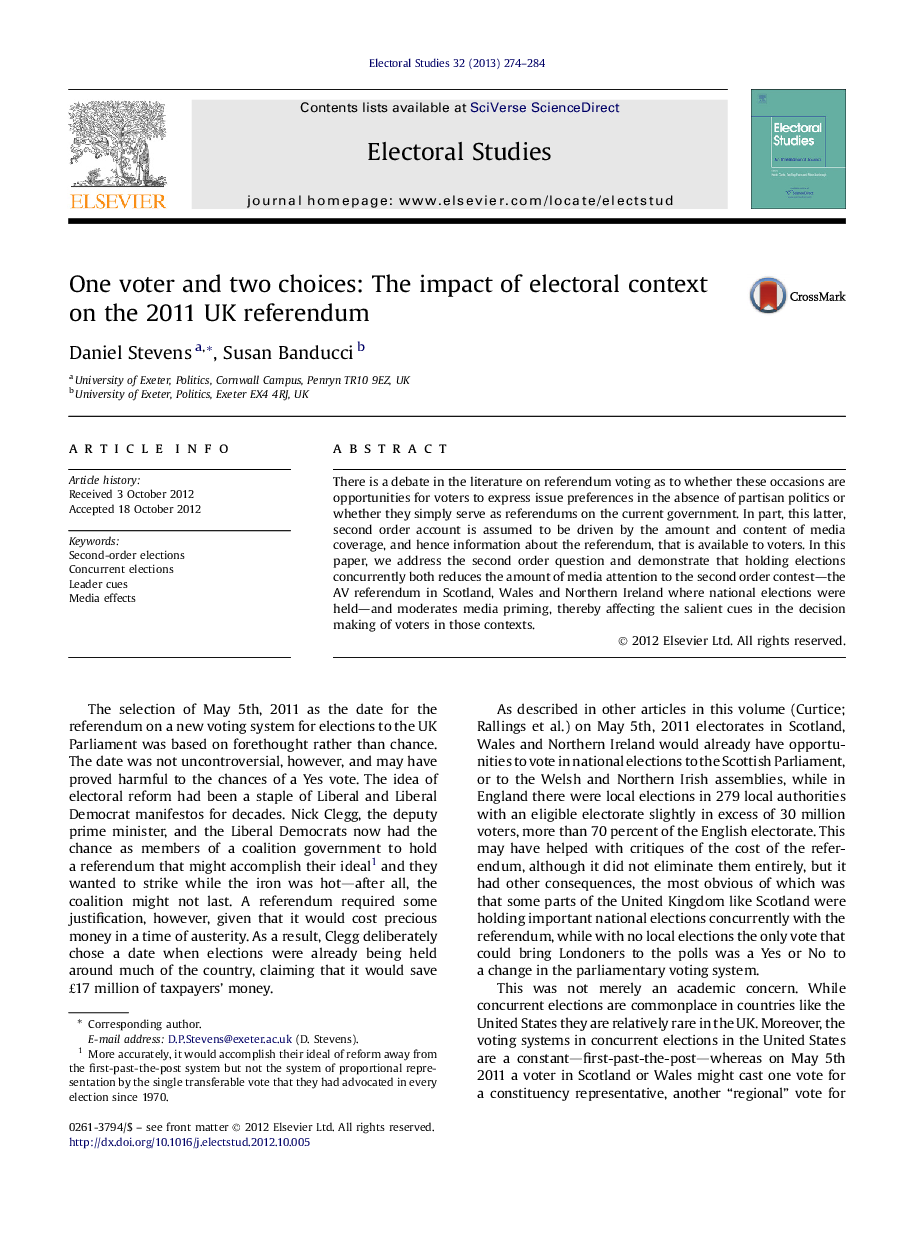| Article ID | Journal | Published Year | Pages | File Type |
|---|---|---|---|---|
| 1051869 | Electoral Studies | 2013 | 11 Pages |
There is a debate in the literature on referendum voting as to whether these occasions are opportunities for voters to express issue preferences in the absence of partisan politics or whether they simply serve as referendums on the current government. In part, this latter, second order account is assumed to be driven by the amount and content of media coverage, and hence information about the referendum, that is available to voters. In this paper, we address the second order question and demonstrate that holding elections concurrently both reduces the amount of media attention to the second order contest—the AV referendum in Scotland, Wales and Northern Ireland where national elections were held—and moderates media priming, thereby affecting the salient cues in the decision making of voters in those contexts.
► We examine the effects of holding the referendum concurrently with other elections in certain parts of the UK. ► We focus on variation in media coverage and effects in these different contexts. ► The media treated the referendum as a second order contest where there were also national elections. ► Media attention to the referendum affected the most salient voter cues in different contexts.
